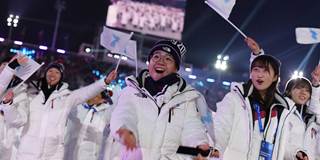OnPoint Subscriber Exclusive
The Big Picture brings together a range of PS commentaries to give readers a comprehensive understanding of topics in the news – and the deeper issues driving the news. The Big Question features concise contributor analysis and predictions on timely topics.

The Winter Olympic Diplomatic Games
The show that really matters in Pyegonchang is the peninsular dance between North Korea’s Kim Jong-un, and South Korea’s Moon Jae-in. Could the North’s surprise participation in the Games induce a thaw that draws America into talks?